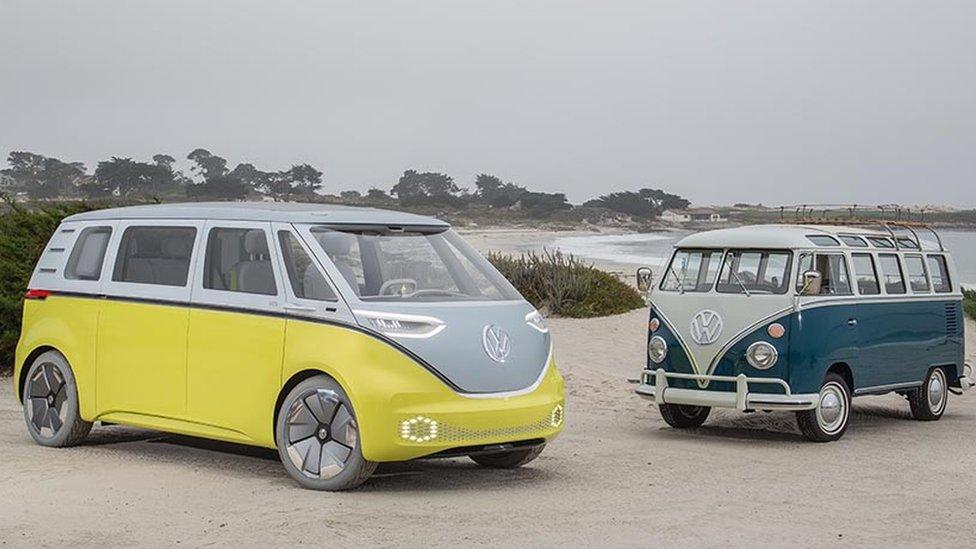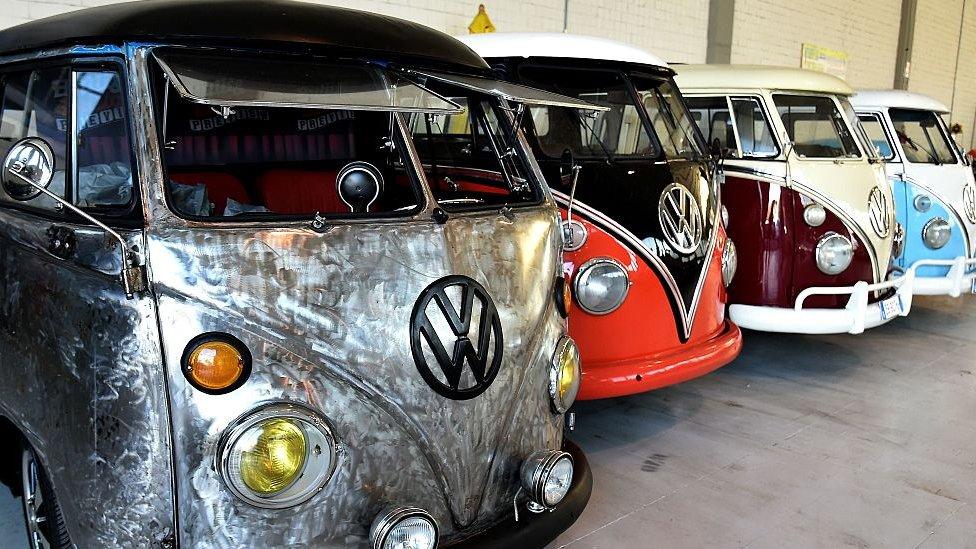VW to relaunch Kombi van as electric vehicle
- Published
- comments

Volkswagen plans to make a new electric van inspired by the one that spawned its much-loved camper.
The last classic VW Kombi, or VW T2, was produced in Brazil in 2013 after safety standards there became too onerous for further adaptation.
Its new microbus made its debut in January. VW says it was inundated with requests to "please build this car".
The new model will hit the road in 2022 but there are no plans as yet to produce a camper version.
VW said the electric van, known as the ID Buzz, will be aimed at customers in North America, Europe and China. There will also be a cargo version of the van.
The Kombi, or Bulli, as it was known in Germany, first went into production in 1950.
Although it was originally simply designed as a jack-of-all-trades van, it is most associated with hippies and camping.
VW itself did not offer them tricked out with cookers, ovens nor even seats that converted to beds.
That came about after engineering firm Westfalia-Werke was asked by a British Army officer in 1950 to turn a VW in to a home, creating the first so-called "Camping Box".
The company then became VW's designated subcontractor for converting the basic vans to campers.
The door of the new microbus opens with a wave of the hand and has electric motors at both ends, giving a large amount of interior space - ideal for bespoke conversion to touring camper vans.

Westfalia-Werke, now owned by Daimler-Chrysler and called Westfalia Mobile, is still converting camper vans, including VWs, but it is not known whether the two companies will resurrect their historic connection.
However, many VW Camper vans were, of course, not official productions themselves, but kitted out by van owners with the skills or money to make the necessary amendments, so a new generation of VW hippy vans cannot be ruled out.
Time to dust off the arc welding gear?